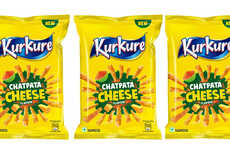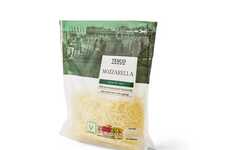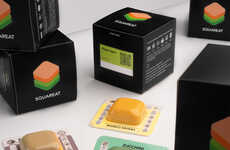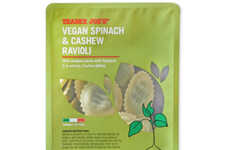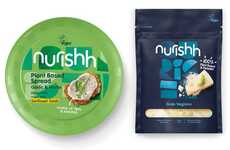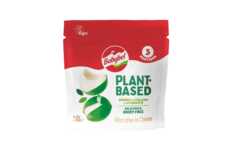



Some vegan cheese brands are using fermentation in their production processes
Trend - Plant-based cheeses typically aren't fermented--and instead are made from ingredients that mimic fermentation flavors. Now, some brands are adopting fermentation into the vegan cheese-making process in order to enhance its quality and better imitate dairy-based cheeses.
Insight - The growing popularity of plant-based foods isn't exclusive among vegan, vegetarian and/or lactose-intolerant consumers. The increasingly sophisticated flavors and ingredients, coupled with the vast range of choices now available in this space, have made more consumers experimental with their dietary choices. These products are also perceived as being more healthy--making them ideal contributors to "flexitarian" diets.
Insight - The growing popularity of plant-based foods isn't exclusive among vegan, vegetarian and/or lactose-intolerant consumers. The increasingly sophisticated flavors and ingredients, coupled with the vast range of choices now available in this space, have made more consumers experimental with their dietary choices. These products are also perceived as being more healthy--making them ideal contributors to "flexitarian" diets.
Workshop Question - How is your brand adapting its offerings to cater to a wide range of consumers?
Trend Themes
1. Fermentation in Plant-based Cheese - Adopting fermentation into vegan cheese-making processes enhances quality and mimics dairy-based cheese flavors.
2. Novel Plant-based Cheese Ingredients - Unique and sustainable ingredients such as fava beans, cashews, hemp seeds, or imperfect cauliflower and hemp seed blends are being used as plant-based cheese bases.
3. Health-conscious Flexitarianism - Consumers favor healthy and novel food options that align with their dietary choices, including vegan, vegetarian, and lactose-intolerant lifestyles, ultimately contributing to 'flexitarian' diets.
Industry Implications
1. Plant-based Foods - As plant-based food products become more diverse, innovative, and accessible, the industry should prioritize expanding production, distribution, and supply chain logistics.
2. Food Tech Startups - Sustainable and scalable fermentation technologies that mimic traditional meat and dairy products are disruptive innovations that can help reduce the ecological impact of food production.
3. Food and Beverage Manufacturing - Manufacturers that invest in innovative ingredients, fermentation process improvements, and sustainable practices can better satisfy health-conscious, eco-minded, and adventurous consumers looking for cheese alternatives.








